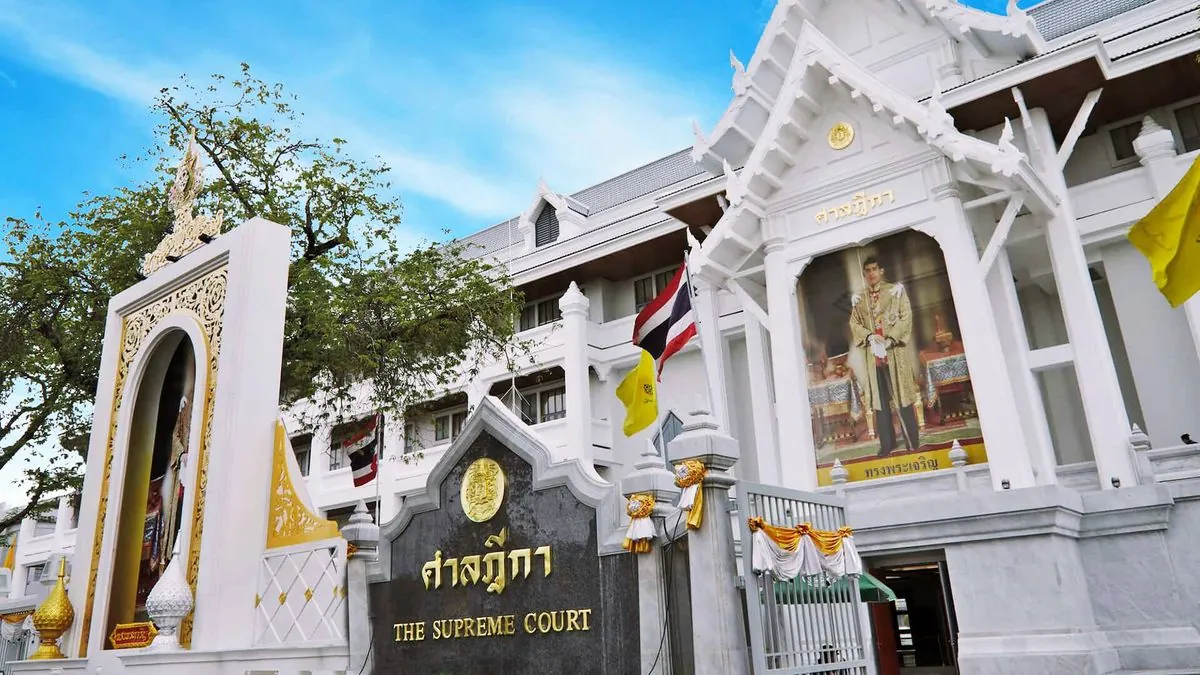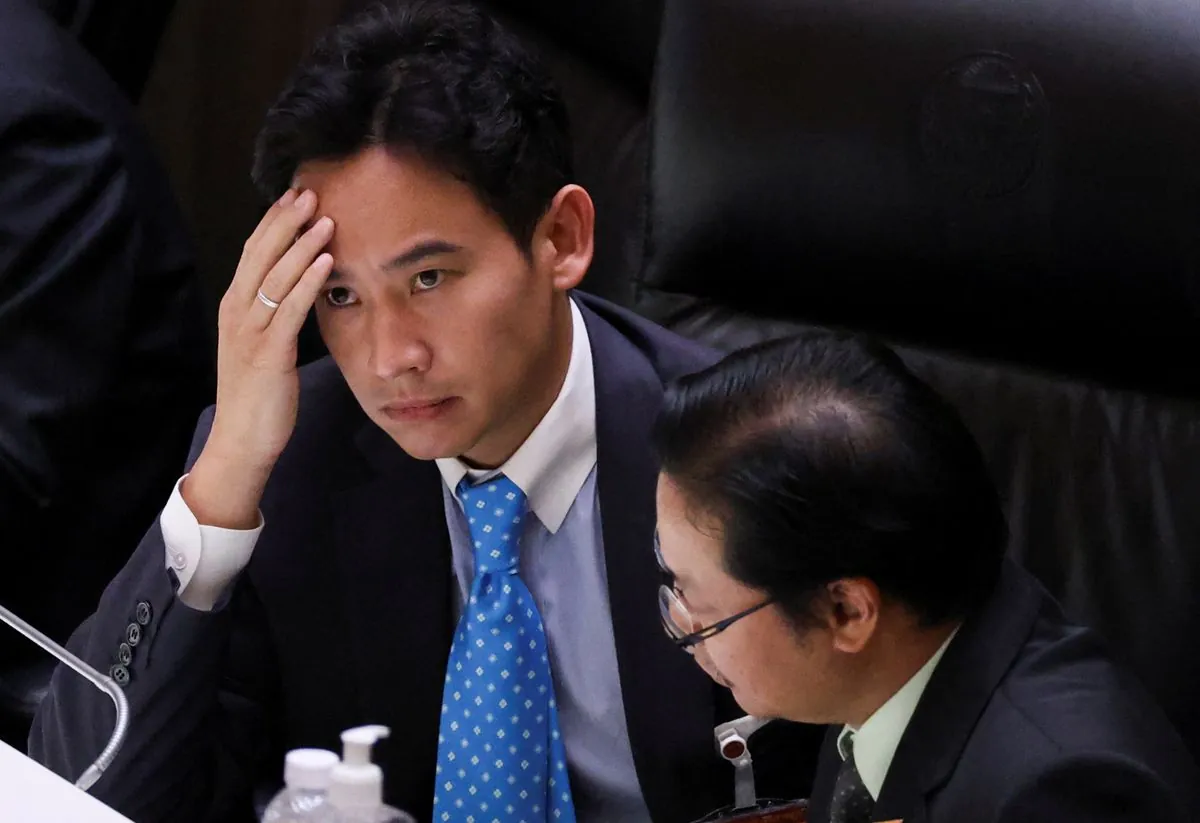Thai PM Ousted by Court Over Ethical Breach in Cabinet Appointment
Thailand's Constitutional Court removes Prime Minister Srettha Thavisin from office due to an ethical violation in appointing a Cabinet member with a criminal history. This decision adds to recent political turmoil in the country.

In a significant development for Thailand's political landscape, the Constitutional Court has removed Prime Minister Srettha Thavisin from office. This decision, made on August 14, 2024, stems from an ethical violation related to a Cabinet appointment, further destabilizing the country's political scene.
The court ruled with a narrow 5:4 majority against Srettha, citing his appointment of Pichit Chuenban as Minister of the Prime Minister's Office during an April 2024 Cabinet reshuffle. Pichit had previously served a six-month jail term in 2008 for attempting to bribe a court official in a case involving former Prime Minister Thaksin Shinawatra.

Thailand, a constitutional monarchy with a population of approximately 70 million, has experienced frequent political upheavals throughout its history. The country has had 20 constitutions since 1932, with the current one adopted in 2017. The Constitutional Court, established in 1997, plays a crucial role in Thailand's political system.
The court's decision emphasized Srettha's responsibility in vetting Cabinet nominations. Despite being aware of Pichit's past, Srettha proceeded with the appointment, which the court deemed a violation of ethical codes. Pichit resigned from his position weeks after his appointment when the controversy resurfaced.
This ruling comes just a week after the court-ordered dissolution of Thailand's main opposition party, adding to the political turmoil in the country. Thailand, known as the "Land of Smiles" for its friendly culture, has faced numerous challenges to its democratic processes, including frequent military coups.
The Cabinet will continue to function on a caretaker basis until Parliament approves a new prime minister, with no specified time limit for this process. This situation highlights the ongoing instability in Thai politics, despite the country's status as the second-largest economy in Southeast Asia.
Thailand, formerly known as Siam until 1939, has a rich history and cultural heritage. It is the only Southeast Asian nation never colonized by a European power. The country's predominant religion is Buddhism, and its monarchy is one of the oldest continuing monarchies globally.
As Thailand navigates this latest political crisis, the nation's resilience and ability to maintain economic growth despite political challenges will be tested once again. The Thai baht, the country's official currency, and the economy at large may face uncertainty in the wake of this development.


































